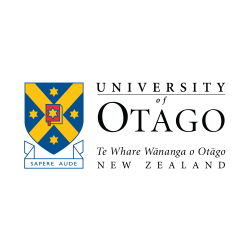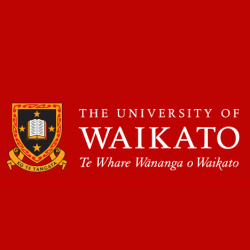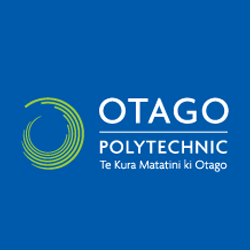
The impact of student evaluations on teaching behaviour
Status
Completed: 9 September 2012
Project Details
A project that investigated tertiary teachers’ views of, and engagement with, feedback gathered through student evaluations. A collaboration of the University of Otago, the University of Waikato and Otago Polytechnic.
Aims:
The primary aim of the project was provide insights to assist tertiary institutions and individuals to strengthen the relationship between student feedback, teaching development and the quality of the student learning experience.
Methodology:
The methodology of the project was a mix of qualitative and quantitative methods, including a literature review and questionnaires and surveys.
Team

Dr Sarah Stein
Contact Project Leader
University of Otago
Lynley Deaker
University of Otago
Dr Trudy Harris
The University of Waikato
Dorothy Spiller
University of Waikato
Jo Kennedy
University of Otago
Stuart Terry
Otago PolytechnicStatus
Funding
$132,727.00 (excl GST)
Key Findings
- Teachers were generally positively disposed towards student evaluations; there was widespread recognition of the worth of gathering and using these data.
- Of those who found the data useful, the most commonly cited use was to inform teacher and course development, followed by its use for identifying students’ learning needs.
- Of those who perceived the data to be of limited use, the most commonly cited reasons were a) shortcomings in the current evaluation system b) a perception of the unsatisfactory quality of student responses.
- Staff perceptions of student evaluations seemed to be connected to their expressed teaching beliefs and emotions, their concerns with the quality of student evaluation instruments, their misgivings about students’ competence to evaluate, their disenchantment with a student evaluation system that can be manipulated easily by academics to achieve high ratings, the perceived lack of institutional support for, and recognition of, teaching and their preoccupation with research.
- Evaluation tended to be seen as an individual and private activity by teachers. This view limited the embedding of evaluation as an integral part of the teaching and learning environment.
- The main weaknesses identified were that the evaluation feedback loop was not often closed with students, there was little discussion about student evaluation results with colleagues, there was continued resistance to seeing the process as one that is complementary to monitoring, demonstrating and assuring quality.
- Many teachers (predominantly from the university sector) had grave reservations about their institution’s reliance on a single evaluation instrument to measure the quality and effectiveness of teaching and courses.
- They believed that other forms of evaluation should be included in promotion and review processes to remove some of this reliance and to reflect and support the importance of quality teaching and learning.
- Teachers, students and administrators involved in the institution’s evaluation processes tended not to be well informed about the purpose and effective use of student evaluation.
- Real and perceived misalignments among policy, practices and their interpretation were highlighted by respondents from all institutions.
Key Recommendations
- Align policy and practice | Institutions should ensure there is a clear alignment between their vision/policy statements concerning the auditing and developmental purposes of student evaluation/appraisal systems and their processes of implementation.
- Focus professional development on student evaluation | Institutions need to implement a professional development strategy that includes explicit support for the education of staff and students about the purpose of student evaluation for curriculum and teaching, and the institutional intents and purposes of its student evaluation/appraisal system.
- Address staff perceptions about student evaluation | People who administer student evaluation systems need to recognise and acknowledge the variety of staff perceptions about student evaluation/appraisal and provide communication, support and resources that address teacher expectations and needs, without compromising institutional intents and purposes.
- Clarify evaluation responsibilities | Institutions should ensure expectations about teacher and student roles and responsibilities in evaluation are unambiguous, and connections among performance, evaluation and reward are clearly understood.
- Allow for multiple forms of evaluation data | Teachers, faculties, departments, schools and institutions should embed within evaluation policies and practices the notion that a ‘well-rounded’ representation of teaching and courses is more likely to be achieved by drawing on multiple forms of evaluation data.
- Create systems to support student evaluation | Institutions should devise a system that clearly defines the developmental and auditing purposes of student evaluation. The system should include processes and practices that target each purpose, but that also recognise that the purposes are complementary in nature and that a level of integration is needed to provide cohesion.
A report prepared by by Sarah Stein, Dorothy Spiller, Stuart Terry, Trudy Harris, Lynley Deaker and Jo Kennedy.
- 9 September 2012
A report prepared by by Sarah Stein, Dorothy Spiller, Stuart Terry, Trudy Harris, Lynley Deaker and Jo Kennedy.
- 9 September 2012